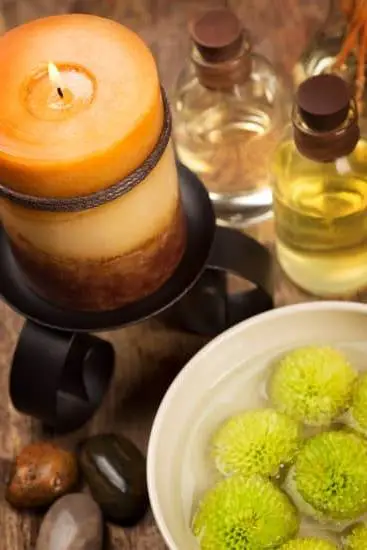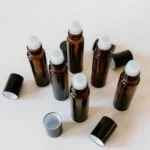Are you looking to learn how to choose the best organic aromatherapy oil? Organic aromatherapy oils have gained popularity for their natural and holistic healing properties. In this article, we will explore the benefits and uses of organic aromatherapy oils, what to look for when buying them, the different types available, and factors to consider when making a selection.
Organic aromatherapy oils are derived from plants and contain natural essential oils that offer numerous therapeutic benefits. From promoting relaxation and reducing stress to relieving pain and improving overall well-being, these oils have been used for centuries in traditional medicine practices. Understanding the potential benefits of organic aromatherapy oils can help you make an informed decision when choosing the best one for your needs.
When it comes to buying organic aromatherapy oils, it’s important to consider certification and purity standards. In addition, understanding the different types of organic aromatherapy oils available and their therapeutic properties can help you narrow down your options. Whether you have specific scent preferences, skin sensitivities, or personal needs, there are several factors to consider when choosing the best organic aromatherapy oil for you.
What to Look for When Buying Organic Aromatherapy Oils
When purchasing organic aromatherapy oils, it’s crucial to look for certification and purity standards to ensure that you are getting a high-quality and genuine product. This section will discuss the importance of certification and purity standards, as well as what to look for when buying organic aromatherapy oils.
Why Certification and Purity Standards Matter
Certification from reputable organizations such as USDA Organic, Ecocert, or Soil Association is essential when choosing organic aromatherapy oils. These certifications guarantee that the oils are made from botanical sources that have been grown and processed without the use of synthetic chemicals, fertilizers, or genetically modified organisms (GMOs). Purity standards ensure that the oils are free from contaminants and adulterants, preserving their therapeutic properties.
What to Look for When Buying Organic Aromatherapy Oils
When shopping for organic aromatherapy oils, it’s important to carefully read labels and product descriptions. Look for terms like “100% pure,” “organic,” “wildcrafted,” or “therapeutic grade.” Avoid products that contain additives, synthetic fragrances, preservatives, or diluents. Additionally, check for the Latin name of the botanical species on the label to ensure accuracy.
Choosing Trusted Brands and Suppliers
To ensure the quality and authenticity of organic aromatherapy oils, it’s advisable to purchase from trusted brands and suppliers with a good reputation in the industry. Research the company’s sourcing practices, extraction methods, and testing protocols. Customer reviews and feedback can also provide valuable insights into the reliability of a brand or supplier.
By understanding certification and purity standards and knowing what to look for when buying organic aromatherapy oils, you can make informed choices that align with your wellness goals. Always prioritize quality and authenticity when selecting essential oils for your aromatherapy needs.
The Different Types of Organic Aromatherapy Oils and Their Therapeutic Properties
Organic aromatherapy oils come in a wide variety of types, each with its own unique therapeutic properties. When choosing the best organic aromatherapy oil for your needs, it’s important to understand the different types available and how they can benefit you. Here are some of the most common types of organic aromatherapy oils and their therapeutic properties:
- Lavender Oil: Known for its calming and relaxing properties, lavender oil is often used to promote better sleep and reduce stress and anxiety.
- Peppermint Oil: With its invigorating and refreshing scent, peppermint oil is commonly used to alleviate headaches, improve focus, and relieve nausea.
- Tea Tree Oil: Renowned for its antimicrobial and antiseptic properties, tea tree oil is often used to treat skin conditions such as acne, eczema, and fungal infections.
- Eucalyptus Oil: A popular choice for respiratory issues, eucalyptus oil can help ease congestion, relieve coughs, and promote clear breathing.
- Chamomile Oil: Known for its soothing and anti-inflammatory effects, chamomile oil is often used to alleviate skin irritation, reduce muscle pain, and promote relaxation.
Understanding the therapeutic properties of different organic aromatherapy oils can help you make an informed decision when choosing the best one for your specific needs. Whether you’re looking to address physical ailments or achieve emotional balance, there’s likely an organic aromatherapy oil that can provide the support you’re seeking.
When considering how to choose the best organic aromatherapy oil for your needs keep these factors in mind:
- Your specific health concerns or goals (e.g. stress relief, improved sleep)
- Your personal preferences regarding scent (e.g. floral, citrusy, earthy)
- Any skin sensitivities or allergies you may have
Taking these factors into account will help you narrow down your options and find an organic aromatherapy oil that aligns with your individual needs and preferences.
Factors to Consider When Choosing the Best Organic Aromatherapy Oil
When choosing the best organic aromatherapy oil for your needs, there are several factors to consider. One of the most important things to keep in mind is your scent preferences. Aromatherapy oils come in a wide variety of scents, so it’s essential to choose one that you find pleasant and soothing. Whether you prefer floral, citrus, woody, or herbal scents, there is an organic aromatherapy oil out there for you.
Another critical factor to consider is skin sensitivities. Some people may have allergic reactions or sensitivities to certain essential oils, so it’s crucial to do a patch test before using any new oil. Additionally, if you have sensitive skin, it’s best to choose mild essential oils such as lavender or chamomile. Always dilute essential oils with a carrier oil before applying them to the skin to avoid any adverse reactions.
Finally, consider your personal needs when choosing an organic aromatherapy oil. Are you looking for an oil that promotes relaxation and stress relief? Or perhaps you need one that boosts energy and mental clarity? Different essential oils have different therapeutic properties, so it’s important to select one that aligns with your specific needs and goals.
In summary, when selecting the best organic aromatherapy oil for yourself, it’s crucial to take into account your scent preferences, skin sensitivities, and personal needs. By considering these factors carefully, you can find the perfect essential oil to enhance your overall well-being.
| Factors for Choosing Organic Aromatherapy Oil | Considerations |
|---|---|
| Scent Preferences | Choose a scent that you find pleasant and soothing |
| Skin Sensitivities | Do a patch test to check for allergic reactions and always dilute with carrier oils if needed |
| Personal Needs | Select an oil that aligns with your specific wellness goals |
How to Use Organic Aromatherapy Oils Safely and Effectively
When it comes to using organic aromatherapy oils, it is important to do so safely and effectively to reap their full benefits. Here are some tips and precautions to keep in mind when incorporating these oils into your wellness routine:
First and foremost, it is crucial to always dilute organic aromatherapy oils before applying them to the skin. Essential oils are highly concentrated and can cause irritation or sensitization if applied directly. Carrier oils such as coconut, almond, or jojoba oil can be used to dilute the essential oil before topical application.
Additionally, when using organic aromatherapy oils topically, it is important to perform a patch test first to check for any adverse reactions. Apply a small amount of the diluted oil to a discreet area of the skin and wait 24 hours to see if any redness, itching, or irritation occurs.
Furthermore, organic aromatherapy oils should never be ingested unless under the guidance of a qualified professional. Ingesting essential oils can be harmful and toxic if not done properly. Always seek advice from a certified aromatherapist or healthcare provider before considering internal use.
By following these tips and precautions, you can ensure that you are using organic aromatherapy oils safely and effectively. It is important to prioritize safety and mindfulness when incorporating these powerful botanical essences into your self-care routine.
Conclusion
In conclusion, choosing the best organic aromatherapy oil can be a rewarding experience when done mindfully and with attention to detail. By understanding the benefits and uses of organic aromatherapy oils, consumers can make informed decisions regarding which oil will best suit their needs. Additionally, ensuring that the oil has been certified as organic and meets purity standards is essential in guaranteeing its quality and effectiveness.
When selecting an organic aromatherapy oil, it is important to consider factors such as scent preferences, skin sensitivities, and personal needs. Different types of oils offer varying therapeutic properties, so it’s crucial to choose an oil that aligns with your desired outcomes. It’s also vital to prioritize safety and usage precautions when using organic aromatherapy oils to maximize their effectiveness while preventing any potential adverse reactions.
In sum, by following these guidelines for purchasing and utilizing organic aromatherapy oils, individuals can make the right choice for their specific needs whether it be for relaxation, skin care, or overall well-being. With an understanding of certification standards, therapeutic properties, and personal considerations, you can confidently select the best organic aromatherapy oil for you.
Frequently Asked Questions
How Do I Choose the Best Quality Essential Oils?
When choosing the best quality essential oils, it’s important to look for purity and authenticity. Check for oils that are labeled as 100% pure, therapeutic-grade, and from reputable brands. Additionally, consider factors like sourcing, extraction methods, and third-party testing to ensure high quality.
How Do I Choose Aromatherapy Oils?
Selecting aromatherapy oils involves considering your specific needs and preferences. Look for oils with scents that appeal to you and have the properties you’re seeking. Consider factors like purity, sustainability, and ethical sourcing practices when making your selection. Reading customer reviews can also be helpful in making a decision.
How Can You Tell if Essential Oils Are High Quality?
To determine if essential oils are high quality, look for certain indicators such as purity tests, organic certification, transparency about sourcing practices, and information on extraction methods used. Additionally, high-quality oils should have a strong and authentic aroma without any added synthetic ingredients or fillers. It’s also beneficial to purchase from trusted and reputable suppliers to ensure quality.

Are you looking for a natural way to improve your health and wellbeing?
If so, aromatherapy may be the answer for you.





